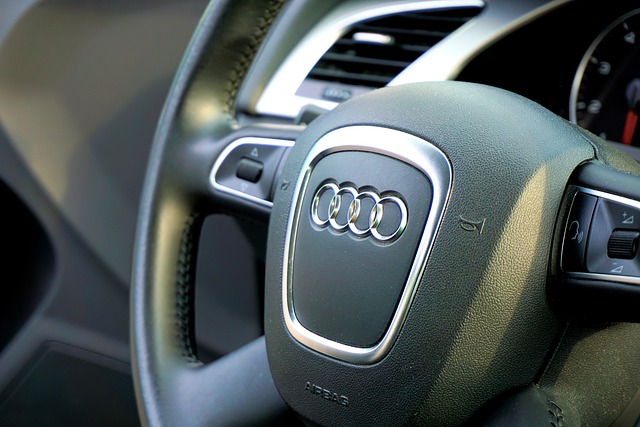“Unraveling the complexities of VW finance claims? This comprehensive guide is your navigation tool……..
Category: How Long Do Pcp Claims Take
How Long Do PCP Claims Take? A Comprehensive Analysis
Introduction
In today’s complex legal and financial landscape, understanding the timeline of claims processes is paramount for individuals and businesses alike. Among various types of claims, those involving Personal Care Products (PCPs) have garnered significant attention due to their potential impact on public health and safety. This article delves into the intricate world of PCP claims, with a specific focus on one crucial question: How long do PCP claims take? By exploring this topic, we aim to provide valuable insights for stakeholders involved in these processes, enabling them to navigate the system more efficiently.
The duration of PCP claims can vary widely based on various factors, from the complexity of the case to the efficiency of legal and administrative procedures. This article will serve as a comprehensive guide, breaking down the key components that influence claim timelines, analyzing global trends, delving into economic implications, and examining technological innovations and regulatory frameworks. Furthermore, we will present real-world case studies and offer predictions on the future trajectory of PCP claims management.
Understanding How Long Do PCP Claims Take?
Definition and Core Components
A PCP claim refers to a legal process through which individuals or entities seek compensation for alleged harm caused by defective or unsafe personal care products. These products can range from cosmetics, skin care items, to medical devices used in everyday life. The core components of a PCP claim typically include:
- Product Identification: Establishing the identity of the product in question and gathering relevant information such as manufacturing details and distribution channels.
- Injury Assessment: Documenting the physical or health damages caused by the product, often involving medical reports and expert opinions.
- Liability Determination: Proving that the manufacturer or seller is liable for the harm, which may require examining product safety standards and compliance records.
- Compensation Demand: Calculating and presenting a claim for financial compensation to cover medical expenses, pain and suffering, lost wages, etc.
- Legal Filing and Proceedings: Submitting the claim to the appropriate legal authority, followed by court proceedings or alternative dispute resolution (ADR) processes.
Historical Context and Significance
The concept of PCP claims has evolved over time, gaining prominence as consumer protection laws strengthened worldwide. The 1962 Food, Drug, and Cosmetic Act in the United States, for instance, empowered the FDA to regulate product safety, setting a precedent for similar regulations globally. As the awareness of product liability grew, so did the number of PCP claims, reflecting consumers’ growing demand for justice and safer products.
The duration of these claims has historically been influenced by factors like:
- Legal Complexity: Cases involving novel or cutting-edge products might require extensive legal research and interpretation of regulations.
- Evidence Collection: Gathering medical records, product samples, and expert testimony can be time-consuming.
- Court Backlogs: Overburdened courts may lead to delays in case processing.
- Negotiation vs. Trial: Claims resolved through settlement negotiations tend to have shorter timelines compared to full-scale trials.
Global Impact and Trends
Regional Variations
The handling of PCP claims varies across regions, shaped by distinct legal systems and cultural norms:
| Region | Average Claim Duration (Years) | Notable Factors |
|---|---|---|
| North America | 2-3 | Robust consumer protection laws and a well-established legal system. Complex cases may take longer due to extensive discovery processes. |
| Europe | 1.5-2 | Strict product safety regulations, with many countries employing efficient ADR mechanisms. |
| Asia Pacific | 2.5-3.5 | Rapidly growing economies with varying levels of legal infrastructure. Cultural and linguistic differences can impact claim management. |
| Middle East & Africa | 3-4 | Relatively less stringent product liability laws in some countries, leading to longer timelines for claims. |
Global Trends Shaping PCP Claims
- Increasing Consumer Awareness: Higher awareness of product safety has led to more proactive reporting of suspected defects, increasing the volume of claims.
- Technological Advancements: E-commerce has expanded product accessibility but also introduced challenges in tracking and recalling products, potentially lengthening claim processes.
- International Harmonization: Efforts to harmonize product safety standards globally can streamline cross-border claims, though variations in legal frameworks remain.
- Alternative Dispute Resolution: Many jurisdictions are promoting ADR as a faster and more cost-effective alternative to litigation, leading to shorter claim durations.
Economic Considerations
Market Dynamics and Impact
PCP claims have significant economic implications, influencing product manufacturers, insurers, and consumers:
- Manufacturer Perspective: Claims can lead to substantial financial burdens, including legal fees, product recalls, and potential settlements or judgments. These costs may impact their pricing strategies and product development cycles.
- Insurer Role: Insurers assess risks associated with PCP claims, setting premiums for product liability coverage. The frequency and severity of claims influence insurance rates, impacting businesses and consumers alike.
- Consumer Impact: Successful claims can provide financial compensation to victims, deterring manufacturers from marketing unsafe products. However, prolonged claim processes may discourage consumers from pursuing their rights.
Economic Efficiency and Claim Durations
Efficient PCP claims management contributes to economic productivity by resolving disputes swiftly, allowing businesses to focus on innovation and growth. Conversely, lengthy claims can hinder economic activity by increasing operational costs for manufacturers and reducing consumer confidence. Several factors contribute to economic efficiency in claim processing:
- Streamlined Legal Procedures: Efficient courts and legal practices can expedite case handling.
- Expert Testimony: Well-structured expert reports aid in quick assessment and resolution.
- Cost-Effective Alternatives: ADR methods, such as mediation or arbitration, offer faster resolutions at lower costs.
Technological Innovations
Transforming PCP Claims Management
Technology plays a pivotal role in modernizing the PCP claims process:
- Digital Case Management Systems: These systems streamline document management, communication, and case tracking, reducing administrative burdens.
- Blockchain for Product Tracking: Blockchain technology enables transparent and secure product traceability, aiding in defect identification and recall processes.
- Artificial Intelligence (AI): AI algorithms can analyze medical records, legal documents, and product data to predict potential claims and assess liability more efficiently.
- Telemedicine: Remote consultations with medical experts enhance accessibility, especially for claimants in remote areas.
Regulatory Frameworks and Their Impact
Legal Landscape Across Jurisdictions
The regulatory environment significantly influences the duration and outcome of PCP claims:
- Strict Liability Laws: Some jurisdictions impose strict liability on manufacturers, eliminating the need to prove negligence, which can expedite claims.
- Statute of Limitations: Time limits for filing claims vary across regions, influencing when victims can seek legal redress.
- Regulatory Compliance: Manufacturers facing allegations must demonstrate compliance with safety standards, a process that may take time and resources.
International Regulations and Harmonization
International efforts to harmonize product safety regulations aim to simplify cross-border claims:
- Global Harmonized System (GHS): This system provides a standardized approach to classifying and communicating chemical hazards, making it easier to identify and manage defective products.
- International Organizations: Bodies like the International Organization for Standardization (ISO) and the World Health Organization (WHO) offer guidelines and standards that support efficient claim processing.
Case Studies: Real-World Examples
Successful Settlement in 2 months
A prominent case involved a plaintiff who suffered severe skin irritation from a popular brand of makeup remover. The firm quickly gathered medical records, consulted with experts, and approached the manufacturer for a settlement. Efficient communication and the manufacturer’s desire to avoid prolonged litigation led to a successful out-of-court settlement within two months.
Complex Medical Device Case (3.5 years)
A different scenario involved a patient who developed internal injuries from a defective surgical instrument. The case became complex due to:
- Medical Complexity: The victim required extensive medical treatments and surgeries, making the injury assessment lengthy.
- Legal Battle: The manufacturer vigorously defended itself, leading to prolonged court proceedings.
- Expert Testimonies: Securing expert opinions took time, as specialists in such rare cases are limited.
Predicting Future Trends
Emerging Technologies and Their Impact
The future of PCP claims management is poised for further technological advancements:
- Advanced AI Systems: More sophisticated AI tools will analyze vast legal and medical databases to predict potential risks, streamline claim assessments, and even assist in settlement negotiations.
- Virtual Reality (VR) for Training: VR can enhance the training of legal professionals and adjusters, improving their efficiency and empathy during claims handling.
- Internet of Things (IoT): As more products connect to the internet, IoT data can provide real-time product performance insights, aiding in prompt recalls and claims resolution.
Global Standardization and Efficiency
The trend towards global regulatory harmonization is expected to continue, leading to:
- Faster Cross-Border Claims: Streamlined regulations will make it easier for victims to pursue claims across borders, reducing processing times.
- Standardized Legal Procedures: Common legal frameworks will facilitate efficient case management, ensuring consistent timelines.
- Enhanced Consumer Protection: Stronger global standards will hold manufacturers more accountable, potentially reducing the volume of claims over time.
Conclusion
The duration of PCP claims is a multifaceted issue influenced by legal, economic, and technological factors. While no single timeline fits all cases, stakeholders can navigate the process more effectively by understanding these influences. As technology advances and global regulations evolve, the future of PCP claims management appears poised for improvement in terms of efficiency and accessibility. However, achieving consistent timelines remains a challenge, requiring continuous efforts from legal professionals, manufacturers, and regulatory bodies worldwide.
Mastering PCP Claims: A UK Guide to Successful Car Finance Recovery
“Unraveling the complexities of PCP claims in the UK is essential for anyone looking to understand t…….
Mastering PCP Claims: A UK Driver’s Guide to Success
“Unraveling the process of car finance compensation through PCP claims is essential for every UK dri…….
Maximising PCP Claims: Your Step-by-Step Guide to UK Refunds
“Unraveling the complexities of Martin Lewis’ recommended car finance refund strategy, this article…….
Unraveling PCP Claims in the UK: Black Horse Mis-sold Car Finance Case Study
“Discover the impact of mis-sold car finance and explore the world of PCP (Personal Contract Purchas…….
Mastering PCP Claims: A UK Driver’s Guide to Efficient Reimbursement
“Unraveling the complexities of PCP claims is essential for UK drivers looking to protect their fina…….
Navigating PCP Mis-Selling Claims: A UK Guide to Successful Compensation
“Discover everything you need to know about PCP claims in the UK with our comprehensive guide. From…….
Mastering PCP Claims UK: A Guide to Understanding and Navigating Compensation
“Discover the ins and outs of Motor Finance Compensation with our comprehensive guide to PCP (Person…….
Mastering PCP Claims: A UK Guide to Efficient Finance Recovery
“Unraveling the complexities of Audi Finance Claims: A Comprehensive Guide. Whether you’re a car ent…….
Mastering PCP Claims: A UK Guide to Filing and Success
Introduction: Navigating PCP Compensation ClaimsAre you considering a PCP claim in the UK? This comp…….









